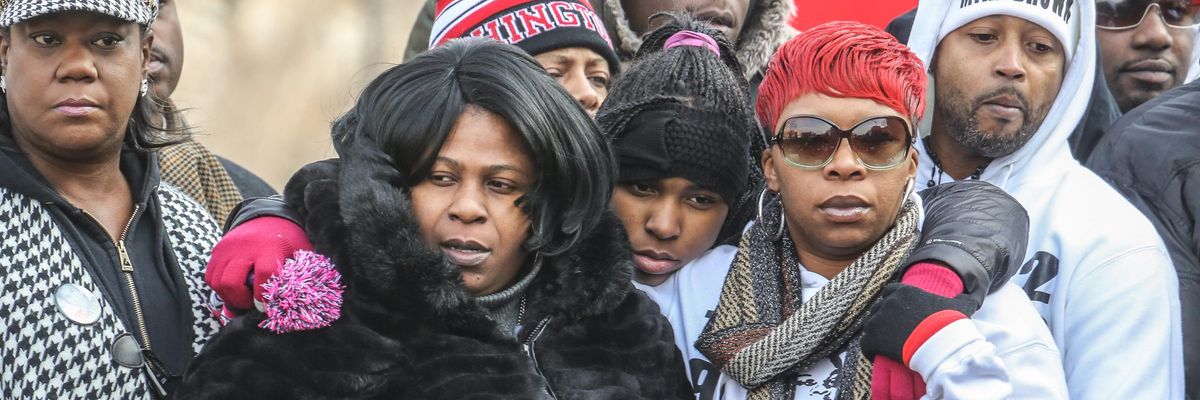The mother of Tamir Rice, who was shot to death at age 12 by a Cleveland, Ohio police officer, condemned the U.S. Department of Justice's decision not to reopen her son's case.
"Shame on them," Samaria Rice toldBuzzfeed News Monday after receiving a letter from the DOJ regarding the Biden administration's decision. "I think they're pitiful and pathetic, and at this point no one is going to get justice when it comes to police shootings in America. It's disgusting I don't have an indictment for my 12-year-old son."
"Curing a defective state process... is consistent with the fundamental purpose of the federal civil rights laws and squarely within the mandate of the DOJ."
Assistant Attorney General Kristen Clarke, who heads the DOJ's Civil Rights Division, told the Rice family in a letter dated last Friday that federal prosecutors who looked at the case could not prove that Rice's civil rights were violated intentionally when he was shot and killed by the officer.
The letter referenced Section 242 of Title 18 in the U.S. Code, which states that "an officer acted 'willfully' if he did so with bad purpose--that is, with the specific intent to do something the law forbids--to deprive a person of their constitutional rights."
"After viewing, and exhaustively evaluating the available evidence in this matter," Clarke wrote, "career prosecutors determined that the federal government could not meet this high standard."
Rice was killed in 2014 after a witness called 911 to report that he was playing with a pellet gun outside a recreation center in Cleveland. Officer Timothy Loehmann shot and killed the boy less than two seconds after pulling up to the scene in a police car, according to video evidence.
The Trump administration said in December 2020 that it would not bring charges against the officer and a grand jury decided not to indict Loehmann as well.
The Cleveland Police Department has been under court-ordered supervision since 2015 after an investigation that began before Rice's killing found its officers had a "pattern or practice" of using excessive force and violating people's civil rights.
Samaria Rice sent four letters to the Biden administration asking the DOJ to reopen her son's case, citing the "long-standing and systemic excessive force problem" in the Cleveland Police Department as one reason to consider federal charges.
Fifty legal scholars signed one of the letters arguing that "covening a federal grand jury and prosecution under Section 242 is warranted."
The scholars cited two federal cases that demonstrate the fact of the case "satisfy the requirement" of Loehmann's intent to violate Rice's civil rights, including United States v. Couch:
The Sixth Circuit upheld jury instructions that explained the intent element to include "reckless disregard" of constitutional rights, and that intent could be inferred from circumstantial evidence. Specifically, the jury instructions in Couch included the explanation that "intent is a state of mind and can be proven by circumstantial evidence" and that it is "not necessary for you to find that the defendants were thinking in constitutional terms at the time of the incident, as a reckless disregard for a person's constitutional rights is evidence of a specific intent to deprive that person of those rights."
In our view, the tragic and unnecessary shooting death of Tamir Rice presents an important opportunity for the Department to clarify and cement a clear, fair, and proper interpretation of Section 242 that fully realizes the purpose of the statute as enacted by Congress.
"Curing a defective state process--in this case, one that appears to have been impermissibly slanted to protect local white law enforcement officials from accountability in the shooting death of a young black child--is consistent with the fundamental purpose of the federal civil rights laws and squarely within the mandate of the DOJ," wrote the scholars.

